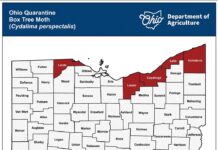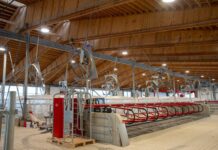It is no secret the population of our farm families is aging rapidly.
According to 2002 U.S. Census, the average age of an Ohio farmer who is the farm’s principal operator is 53.8. That is more than a year older than the 52.5 year average in 1997 and the oldest since the census began collecting the data in 1940.
Additionally, 25 percent of the farm population is older than 64.
As the age of Ohio’s farm operators increases, farm succession planning, the process by which the ownership and management of the family business is transferred to the next generation, will become one of the most important risk management issues a farm family will face.
Waiting. Most farmers dream of seeing their legacy passed to the next generation, but postpone initiating a plan for succession, often citing there is not enough time to discuss these matters or that succession planning is intimidating in its complexity and magnitude.
Many of our family farms have two to three generations working side by side. Dairy farm families have traditionally been a hierarchical structure, where the older generation holds the purse strings until death. Oftentimes, the second generation on the farm is not given any managerial control of the operation until they are old enough to retire themselves.
I have found, in my discussions with many local farmers, that it is not the four letter words they are afraid to discuss, but rather the five- or six-letter words like the future, death and taxes. Letting go of control over a farm is hard, and rightly so.
Identity crisis. Unlike professionals in other fields, farmers almost never change their job. They live and work in the same place. If a farmer is not farming, who is he or she? What is he suppose to do with his time?
Passing on the farm to the next generation is not the greatest challenge. Being able to let go and step aside so the successor you have chosen can run the farm is the ultimate farm management challenge.
Don’t get me wrong. The younger generation needs to pay its dues and be groomed to take over the managerial responsibility. Each farmer has a book of knowledge stored in his brain. After all, if it has been built, broke and fixed, they have done it. Nothing can replace the years of experience that each farmer has.
Hesitant. Even though the younger generations will say they are ready, many are really thinking, “Am I ready to meet the challenges of managing my family’s farm or business in the future? Has the total management package been transferred to me from my parents and grandparents? Can I handle this farm on my own? Without my parents, who will be my sounding board?”
Farm transition should not be something that happens when someone dies. The earlier the transition begins, the better. Properly done, succession planning and grooming the next generation should be lifelong endeavors that start at birth.
We find the most successful operations are the ones that share managerial duties and create opportunities for the younger generation. This type of arrangement allows the patriarchs to pass along all of the “trade secrets” prior to their leaving the business and help ensure the continued success of the business.
Tough topic. Unlike cropping practices, milking procedures, selecting sires to breed with or balancing the total mixed ration, transition and succession planning discussion rarely is a topic of discussion during the daily activities on the farm.
A sure way to kill any good farm discussion is to bring up a subject that means confronting and admitting one’s own mortality.
(The author is an agricultural and natural resources extension educator in Ashtabula County. Questions or comments can be sent in care of Farm and Dairy, P.O. Box 38, Salem, OH 44460.)
Related article:
Build on your own success
ASHLAND, Ohio – A group of Ohio extension educators are teaming up to design a program that will help farm families talk about the future of their farm business in a nonthreatening, relaxed atmosphere.
This workshop, Building On Your Success As A Family Business, will be offered next March 24 in Ashland County. The workshop has been developed to provide an opportunity for multiple generations of a family business hear the same message and encourage discussion about the important managerial issues that are required for continued business success.
Topics. Discussion will include the role of managers, preparing the next generation for their responsibilities, creating opportunity, sharing responsibility, communication and honesty.
This workshop has been conducted in Licking and Tuscarawas counties and has been highly rated by all participants.
One of the university’s newest extension educators, Julia Woodruff, will be coordinating this workshop.
For complete registration details, contact Woodruff at the Ashland County extension office at 419-281-8242 or at woodruff.94@osu.edu.











